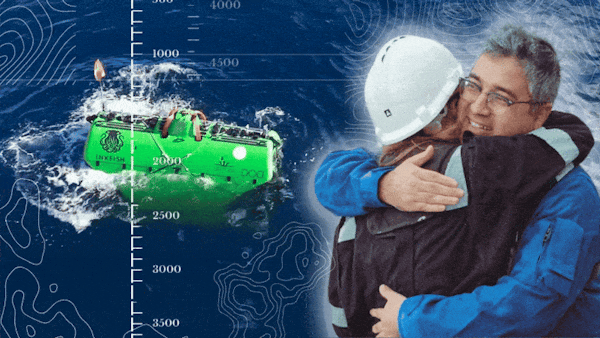|
If you had to guess, how much more do you think the average CEO of a big US or Australian company earns, compared to the average worker?
In the US – where Elon Musk could become the world’s first trillionaire over the next decade – it’s a staggering 265 to 300 times more than average American workers.
What about Australia? As Brad Ephinstone explains, while it’s not quite that eye-watering a gap, it’s many times more than Australians often guess.
So how much money is really enough? And if we just want to be happier, what else actually works?
|

|
Liz Minchin
Executive Editor + Business Editor
|
|
| |

Brad Elphinstone, Swinburne University of Technology
Wealth inequality is a growing problem, with the richest 20% of Australians owning more than 60% of our wealth. But for true happiness, more money is rarely enough.
|

Sally Larsen, University of New England; Caroline Cohrssen, University of New England
An Australian study suggests early education is not making as much of a difference as it should when it comes to young children’s development and learning.
|

Rebecca Bentley, The University of Melbourne; Kate Mason, The University of Melbourne
We spend a lot of time and money treating chronic health conditions. But we could prevent some of them in the first place if we improved housing.
|

Janet Hoek, University of Otago; Andrew Waa, University of Otago; Lani Teddy, University of Otago; Philip Gendall, University of Otago
Early versions of graphic warnings on smoked tobacco products aimed to arouse fear. But addressing feelings of regret and shame may be more motivating to quit.
|
 Yakup Niyazi, Prema Arasu & The Conversation Digital Storytelling Team Yakup Niyazi left behind everything he knew in the desert to become a marine geoscientist. Now, his expedition is shedding light on the landscapes and animals of the ocean's depths. |
|
|

Brad Underhill, Deakin University; Helen Gardner, Deakin University
PNG’s founding leaders didn’t just inherit Australian institutions – they reimagined how they could best suit the country’s belief systems and traditional culture.
|

Geoff Keating, University of Southern Queensland
Papua New Guinea has played a pivotal role in some key moments in Australian history – including Federation.
|

Mehmet Ozalp, Charles Sturt University
For the first time, the experiences of Muslim Australians have been systematically documented and addressed. The government must now act decisively.
|
Politics + Society
|
-
Keiran Hardy, Griffith University
From a quirky Australian wheat farmer to more violent outcomes, the sovereign citizen movement often stems from a feeling of angst and uncertainty.
|
|
Health + Medicine
|
-
Jennifer Power, La Trobe University; Alexandra James, La Trobe University; Thomas Norman, La Trobe University
‘The sex talk’ is not one single conversation. Here’s how to get started even if it seems super awkward.
-
Rose Cairns, University of Sydney; Nicholas Buckley, University of Sydney
Medicinal cannabis scripts are rising and reports of side effects are likely an underestimate. Here’s what we know about the risks.
|
|
Business + Economy
|
-
Angel Zhong, RMIT University; Jason Tian, Swinburne University of Technology
Larry Ellison’s moment in the spotlight has illuminated how extraordinarily exposed the global markets – and Australians’ superannuation – are to the AI boom.
|
|
Environment + Energy
|
-
Wesley Morgan, UNSW Sydney
If Australia’s geo-strategic jostling in the Pacific is to work, we must show serious commitment to curbing global warming.
|
|
Science + Technology
|
-
Ehsan Nabavi, Australian National University
If governments now see AI as a tool to reform housing planning and assessments, they shouldn’t rush headlong.
-
Claire Richards, University of Technology Sydney; Lana McClements, University of Technology Sydney
‘Placental organoids’ may help research into the early stages of pregnancy and life-threatening conditions like preeclampsia.
|
|
Arts + Culture
|
-
Cymbeline Buhler King, Western Sydney University
First published in 1928, Virgina Woolf’s Orlando throws gender politics into the air. A new adaptation fails to define a problem for Orlando to push back against.
-
Lee Wallace, University of Sydney
This adult animation, laced with beautifully illustrated musical sequences, offers a fresh take on modern lesbian relationships.
|
|
Books + Ideas
|
-
Russell Blackford, University of Newcastle
Why are so many Americans unwilling to identify as liberals, white or otherwise, even while supporting traditionally ‘liberal’ government programs?
|
|
|
|
|
Reef SOS
"Yesterday we read in the Geraldton local newspaper of Premier Roger Cook’s welcome announcement of increasing the area of Marine Park dedicated to protecting Ningaloo’s waters and increasing funding for studying the problems associated with rising temperatures and resulting coral damage by bleaching events. Yet on the very same page of the newspaper was a paid advertisement by Chevron delimiting a huge marine area adjacent to Exmouth where it will be engaging in exploration and drilling for gas and oil. The advertisement is asking for public opinion, honestly where is the credibility? Climate change is real, reefs are dying up here. We are on a
caravanning trip to the Ningaloo region and have been snorkelling off from Exmouth and we saw the alarming state of the coral, covered in green algaes. We will be opposing this project, but how many people will not even know it’s happening?"
Izzy Luescher
Not so united
"Surely the 'United States' of America is now an obvious misnomer. They are obsessed with red and blue states. The politics of the two political parties ensures they will never agree on anything, making it impossible to have an equitable, thoughtful democracy. 77,303,568 Americans voted for this."
Steve Bentley, Camira QLD
We'd love to hear from you. You can email us with your thoughts on our stories and each day we'll publish an edited selection.
|
| |
|
|
|
Auckland University of Technology
Auckland, New Zealand
•
Contract
|

|
|
The Conversation AU/NZ
New Zealand
•
Full Time
|
| |